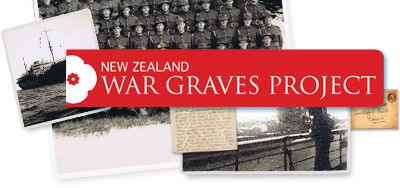An adventurous Frenchman whose attempts to get New Zealand's fledgling aviation industry off the ground were cut short by the outbreak of World War I.
Claude Couturier rushed back to his homeland to join the fight against the Germans.
Four months later, he was shot down over the Western Front and killed.
He would be the second flyer with New Zealand associations killed in the 1914-18 war.
Aussie-born Kiwi Bill Burn was the first to die, on July 30, 1915; Couturier died about a month later, on September 1, 1915.
He was born at Le Creusot in 1877 before emigrating to the United States as a 29-year-old.
In 1911 he enrolled at the Wright brothers' world-famous flying school at Dayton, Ohio.
Passing his tests, the Wright brothers were so impressed that they offered him a job.
But Couturier had his own big ideas. In 1912, he moved to New Zealand, with the idea of establishing his own flying school. Unfortunately for him, he got involved with a Bleriot monoplane which would become bogged down with teething problems.
A first attempt at flight in Southland was aborted by a broken propeller.
He took the plane to Rolleston, outside Christchurch, where he made alterations.
It then "handled beautifully", he was quoted as saying, and made flights of "four feet or so off the ground", even later "rising to 15 feet or so and going a good distance".
Engine troubles and other issues marred his ambitions.
By the outbreak of war, he had never made a proper flight in New Zealand, only some "low-level hops over short distances", wrote Errol Martyn, author of A Passion For Flight: New Zealand Aviation Before the Great War.
"Couturier was perhaps the most exotic airman to fly, or at least attempt to fly, in New Zealand prior to the war," Mr Martyn said.
"A practical-minded aviation enthusiast, he foresaw great possibilities for aviation in Canterbury in particular.
"Had he a more powerful aeroplane, and war not intervened, he may well have established the country's first flying school."
Couturier returned home at the outbreak of war at his own expense when he joined the French air force, the Aviation Militaire.
He enlisted as a pilot under training at tample [Étampes] on April 27, 1915 and was posted to Escadrille (Squadron) MF 2, an observation squadron.
On September 1, Couturier and his observer Lieutenant Moisan were flying a Maurice Farman MF.11 biplane west of Verdun.
They were reporting the fall of French artillery fire when they were attacked by two enemy machines.
Within minutes both had received at least four serious wounds.
Couturier tried to reach the French lines but died while they were 300 metres above the trenches.
The aircraft crashed near Parois, 19km west of Verdun, and they were buried at Necropole Nationale de Vauquois, Meuse.
His short four months' service and early death was to become "an all too familiar type of experience" for many aircrew during the war, Mr Martyn said.
Sources: A Passion For Flight: New Zealand Aviation Before the Great War; Errol Martyn; New Zealand Embassy Paris.
Published in the New Zealand Herald, 27th September 2014 by Kurt Bayer




